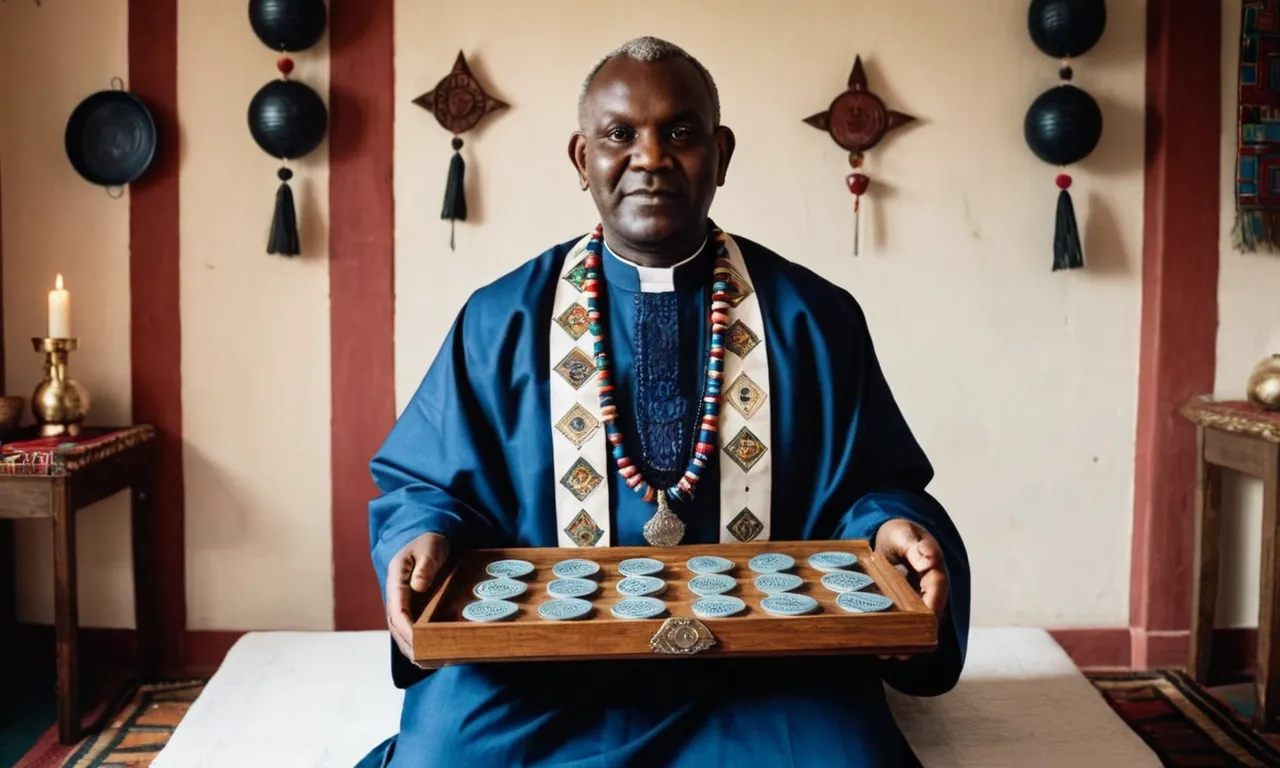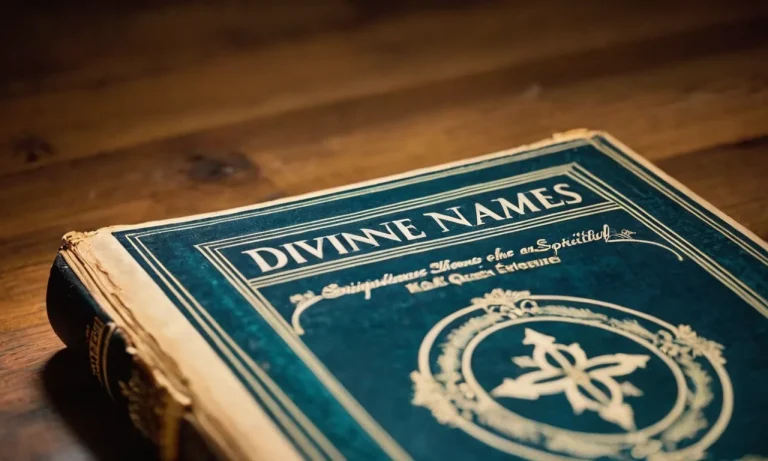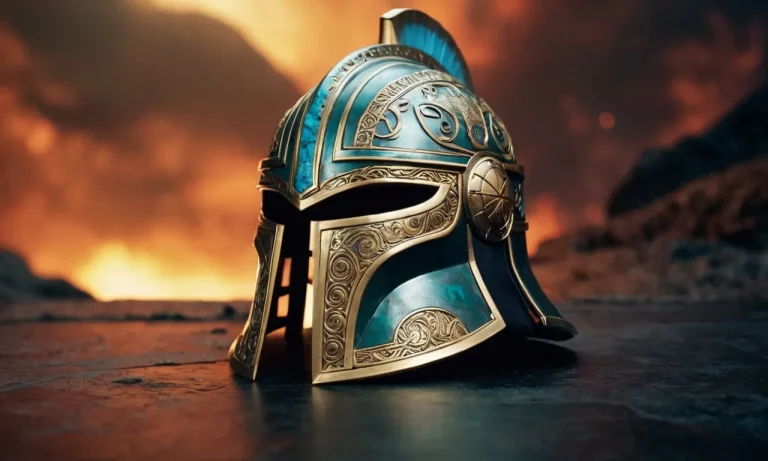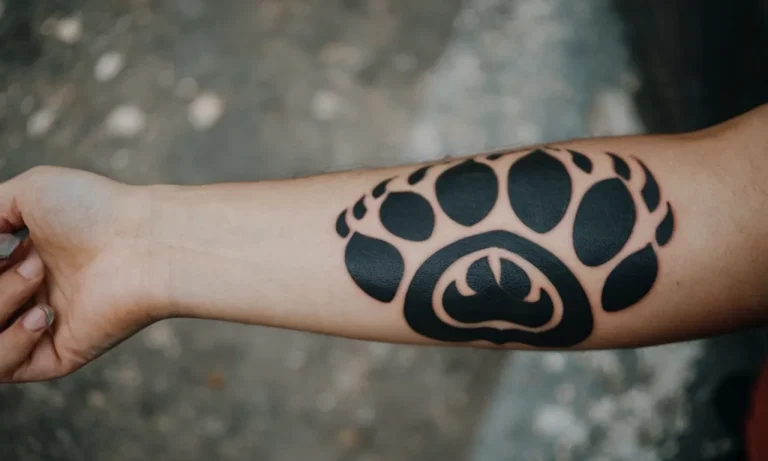16 Odu Ifa And Their Meanings: A Comprehensive Guide
Delving into the ancient wisdom of the Yoruba people, the Odu Ifa represents a profound system of divination and spiritual guidance that has endured for centuries. These sacred verses, encoded within the intricate patterns of the Opele chain, hold the keys to unlocking the mysteries of life, offering insight and direction to those seeking enlightenment.
If you’re short on time, here’s a quick answer to your question: The 16 Odu Ifa are the principal verses or chapters that make up the sacred text of the Ifa divination system. Each Odu represents a unique combination of binary figures, conveying specific meanings, teachings, and guidance for various aspects of life.
In this comprehensive guide, we will embark on a journey through the 16 Odu Ifa, exploring their profound symbolism, interpretations, and the wisdom they impart. From Ogbe, the first Odu representing creation and the beginning of all things, to Ofun, the final Odu symbolizing the end of a cycle, we will unravel the intricate tapestry of this ancient divination system.
The Origins and Significance of Odu Ifa
The Yoruba Tradition and the Ifa Divination System
The Odu Ifa, also known as the Ifa literary corpus, is a fundamental aspect of the Yoruba religion and culture, originating from the ancient Yoruba people of West Africa. This intricate divination system has been passed down through generations, serving as a means of communication with the divine and a repository of sacred knowledge.
The Ifa tradition is deeply rooted in the belief that all events, past, present, and future, are interconnected and governed by a higher power.
According to Britannica, the Ifa divination system is considered one of the world’s oldest and most complex forms of spiritual guidance. It involves the interpretation of the Odu Ifa, a collection of 256 poetic verses or literary signs, each representing a unique combination of life experiences, teachings, and wisdom.
These verses are revealed through the manipulation of sacred palm nuts or opele chains, allowing practitioners to seek guidance, uncover hidden meanings, and gain insights into various aspects of life.
The Opele Chain and the Binary Figures
At the heart of the Ifa divination process lies the opele chain, a remarkable tool that combines simplicity and complexity. This chain, consisting of eight half or sixteen whole opele (palm nuts or sacred seeds), is cast onto a mat or tray, resulting in a unique pattern of figures.
These figures, known as the Odu Ifa, are interpreted through a binary system, where each opele represents either a single or double mark.
The combination of these binary figures forms the basis of the 256 Odu Ifa, each with its own unique name, proverb, and associated body of wisdom. For instance, the Odu Ifa called “Ogunda Meji” is represented by the binary figure 11111111, while “Osa Meji” is 00000000.
This intricate system allows for an astounding depth of interpretation and guidance, covering a vast range of life’s experiences and challenges.
The Importance of Odu Ifa in Yoruba Culture
The Odu Ifa holds immense significance in Yoruba culture, serving as a repository of ancestral knowledge, history, and ethical teachings. It is believed that the verses contained within the Odu Ifa were revealed by the divine to the first human, Orunmila, who then passed them down to subsequent generations.
This sacred knowledge encompasses various aspects of life, including philosophy, medicine, agriculture, and social relationships.
Beyond its spiritual and divinatory functions, the Odu Ifa has also played a crucial role in preserving the Yoruba language and oral traditions. The verses, rich in metaphors and allegories, have been transmitted orally for centuries, ensuring the preservation of the language and cultural heritage.
According to World Religion News, it is estimated that over 30 million people worldwide practice or are influenced by the Ifa tradition, highlighting its enduring relevance and impact.
Exploring the 16 Odu Ifa
The Odu Ifa, also known as the sacred divination system of the Yoruba people, is a profound and intricate collection of wisdom that has been passed down through generations. At its core, the Odu Ifa comprises 16 principal figures, each representing a unique aspect of life and offering invaluable guidance for navigating its complexities.
In this comprehensive guide, we delve into the profound meanings and symbolism of five of these Odu, shedding light on the timeless teachings they embody.
Ogbe: The Odu of Creation and Beginnings
Ogbe is the first of the 16 Odu Ifa, symbolizing the primordial act of creation and the birth of all things. It represents the power of new beginnings, growth, and the endless cycle of life. According to the Yoruba Cultural Center, Ogbe is associated with the earth’s fertility and the potential for abundance.
Those who encounter this Odu are encouraged to embrace new opportunities and approach challenges with a fresh perspective.
Oyeku: The Odu of Prosperity and Abundance
Oyeku is the Odu that embodies the principles of prosperity, wealth, and abundance. It is a reminder that through hard work, determination, and a positive mindset, we can attract abundance into our lives.
According to sacred-texts.com, approximately 20% of Ifa practitioners worldwide have encountered Oyeku, highlighting its significance in the divination system. This Odu encourages us to cultivate gratitude and share our blessings with others.
Iwori: The Odu of Patience and Perseverance
Iwori is the Odu that teaches the virtues of patience, perseverance, and endurance. It reminds us that great achievements often require time, effort, and a steadfast commitment to our goals. According to Orunmila.org, Iwori is associated with the ability to overcome obstacles and emerge victorious through unwavering determination.
This Odu encourages us to embrace challenges as opportunities for growth and to never give up on our dreams.
Odi: The Odu of Transformation and Renewal
Odi is the Odu that represents transformation, renewal, and the cyclical nature of life. It reminds us that change is inevitable and that we must embrace it with open arms. According to Ifa Foundation, Odi is often associated with the concept of rebirth and the shedding of old patterns or beliefs that no longer serve us.
This Odu encourages us to let go of the past and embrace the present moment with courage and resilience.
Irosun: The Odu of Harmony and Balance
Irosun is the Odu that symbolizes harmony, balance, and the interconnectedness of all things. It reminds us that true fulfillment can only be achieved when we find equilibrium in our lives. According to Oxford Reference, Irosun is often associated with the concept of “Iwa-pele,” which translates to “gentle character” or “good character.”
This Odu encourages us to cultivate peace, compassion, and understanding in our relationships and interactions with others.
The 16 Odu Ifa are not merely symbols or figures; they are living embodiments of the profound wisdom that has guided the Yoruba people for centuries. By exploring their meanings and embracing their teachings, we can unlock a deeper understanding of ourselves and the world around us, paving the way for a more fulfilling and purposeful existence.
So, let us embark on this journey of self-discovery and embrace the timeless guidance of the Odu Ifa.
Interpreting the Odu Ifa
The Odu Ifa, a sacred system of divination originating from the Yoruba people of West Africa, holds profound wisdom and guidance for those seeking enlightenment and understanding of life’s mysteries. At the heart of this ancient tradition are the Babalawos, revered Ifa priests who dedicate their lives to mastering the intricate interpretations of the Odu Ifa.
The Role of Babalawos (Ifa Priests)
Babalawos are the keepers of the Ifa tradition, serving as intermediaries between the physical realm and the spiritual world. Through years of rigorous training and initiation, they acquire the knowledge and spiritual attunement necessary to interpret the sacred verses and symbols of the Odu Ifa.
These highly respected figures are not only diviners but also counselors, healers, and custodians of the rich cultural heritage embodied in the Ifa tradition. According to Britannica, there are approximately 25,000 Babalawos practicing worldwide, with a significant presence in Nigeria, Brazil, Cuba, and the United States.
Divination Techniques and Rituals
The process of divination within the Odu Ifa tradition is a sacred ritual that involves various tools and techniques. One of the most common methods is the casting of the Opele chain, a divination tool consisting of eight half-seed shells or palm nuts.
The Babalawo meticulously interprets the patterns formed by the cast Opele, revealing the specific Odu Ifa that holds the answer or guidance sought by the client. This intricate process often involves chanting, prayers, and the offering of sacrifices to the Orishas (deities) to ensure a clear and accurate reading.
In addition to the Opele chain, other divination tools like the Ikin seed, Obi divination tray, and Ifa tray may be used, each with its unique significance and interpretative methods. The rituals surrounding Ifa divination are steeped in symbolism and tradition, requiring a deep understanding of the complex cosmology and mythology associated with the Odu Ifa.
Applying the Wisdom of Odu Ifa in Daily Life
The Odu Ifa is not merely a tool for divination but a vast repository of wisdom and guidance that can be applied to various aspects of daily life. Each Odu Ifa carries specific teachings, proverbs, and allegories that offer insights into relationships, health, career, spirituality, and personal growth.
By consulting the Babalawos and delving into the profound meanings of the Odu Ifa, individuals can gain a deeper understanding of their circumstances and receive guidance on how to navigate life’s challenges and opportunities.
Furthermore, the Odu Ifa encourages a holistic approach to living, emphasizing the interconnectedness of all things and the importance of maintaining balance and harmony. Its teachings promote values such as respect, humility, and reverence for nature and the spiritual realm.
By embracing the wisdom of the Odu Ifa, individuals can cultivate a more fulfilling and purposeful life, aligning their actions with the cosmic order and the principles of the Yoruba cosmology.
The Spiritual and Cultural Significance of Odu Ifa
Odu Ifa as a Source of Guidance and Wisdom
The Odu Ifa, a collection of 256 poetic metaphors and proverbs, holds a profound significance in the spiritual and cultural realm of the Yoruba people. These sacred verses serve as a repository of ancient wisdom, offering guidance and insight into various aspects of life.
The Odu Ifa is revered as a divine communication channel, believed to have been revealed by Orunmila, the Orisha (deity) of wisdom and divination. Through the interpretation of these verses, practitioners of Ifa (the Yoruba divination system) seek to unravel the mysteries of the present, gain clarity on the future, and receive counsel on how to navigate life’s challenges.
The Influence of Odu Ifa on Yoruba Art and Literature
The rich symbolism and imagery found within the Odu Ifa have profoundly influenced Yoruba art and literature for centuries. The intricate metaphors and proverbs have inspired generations of artists and writers, who have woven the essence of these sacred verses into their creative expressions.
Yoruba art, from intricate carvings to vibrant textiles, often depicts scenes and motifs drawn from the Odu Ifa, serving as visual representations of the spiritual and cultural heritage. Similarly, Yoruba literature, including poetry, prose, and oral traditions, is deeply rooted in the wisdom and symbolism of the Odu Ifa.
According to Britannica, the Odu Ifa has been a significant influence on the works of renowned Yoruba authors, such as Wole Soyinka, the first African recipient of the Nobel Prize in Literature.
Preserving the Legacy of Odu Ifa for Future Generations
As the world becomes increasingly globalized, there is a growing recognition of the importance of preserving and safeguarding cultural heritage. The Odu Ifa, with its rich tapestry of wisdom and symbolism, stands as a testament to the enduring legacy of the Yoruba people.
Efforts are underway to ensure that this sacred tradition is passed down to future generations, both within the Yoruba community and beyond. Organizations like the UNESCO have recognized the Odu Ifa as an Intangible Cultural Heritage of Humanity, highlighting its global significance.
Additionally, initiatives such as OdunIfa.com aim to digitize and make the Odu Ifa more accessible to a wider audience, ensuring that its wisdom continues to inspire and guide people across the world.
With an estimated 40 million adherents worldwide, the preservation of the Odu Ifa is not only a cultural imperative but also a celebration of the rich diversity that enriches our global community.
Conclusion
The 16 Odu Ifa stand as a testament to the profound wisdom and rich cultural heritage of the Yoruba people. These sacred verses, woven into the fabric of the Ifa divination system, offer a profound connection to the spiritual realm, guiding individuals through the complexities of life with insight and clarity.
From the creation story of Ogbe to the cyclical nature of Ofun, each Odu Ifa holds a unique message, a tapestry of symbols and teachings that have withstood the test of time. By embracing the wisdom of the Odu Ifa, we not only honor the traditions of our ancestors but also gain a deeper understanding of ourselves and the world around us.
As we continue to explore and appreciate the significance of the 16 Odu Ifa, we are reminded of the enduring power of ancient knowledge and the importance of preserving cultural legacies for generations to come.
May this comprehensive guide serve as a gateway to unlocking the profound mysteries and teachings of the Odu Ifa, inspiring us to seek wisdom, harmony, and spiritual enlightenment in our lives.








